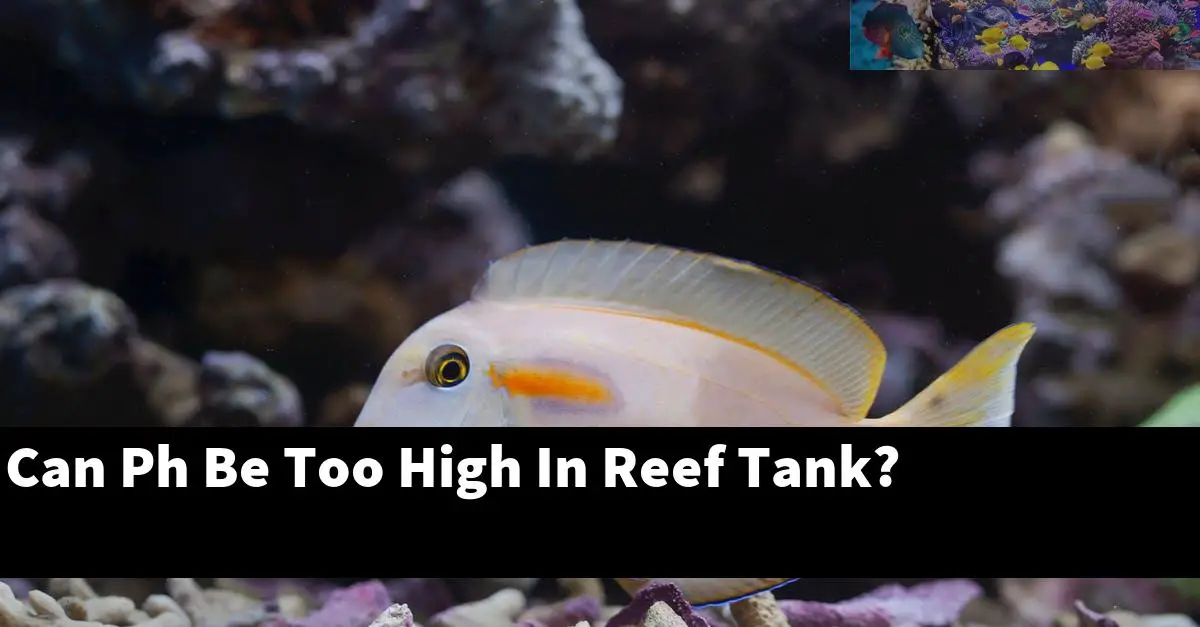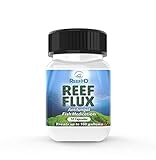A reef tank is a marine aquarium that features live corals and other marine invertebrates. The water in a reef tank is typically more alkaline than in a fish-only aquarium, and the level of dissolved carbon dioxide is usually kept low. A reef tank typically has a higher pH than a fish-only aquarium.
Can high pH levels in a reef tank cause problems for the inhabitants?
A high pH level in a reef tank can cause problems for the inhabitants. The high pH level can damage the coral and other organisms that live in the tank.
The high pH level can also make it difficult for the tank inhabitants to survive.
What are some of the possible consequences of having too high of a pH in a reef tank?
There are many potential consequences of high pH levels in reef tanks.
ReefHD Reef Flux Anti-Fungal Treatment (100 gal)
Red Sea Reef Energy Plus 500ml (AB+) All in One Coral Food for Saltwater Aquarium Marine Reef Tanks | Food for Soft, LPS, SPS, and Non-Photosynthetic Corals
$29.99 ($3.55 / Fl Oz) (as of June 27, 2025 06:30 GMT +03:00 - More infoProduct prices and availability are accurate as of the date/time indicated and are subject to change. Any price and availability information displayed on [relevant Amazon Site(s), as applicable] at the time of purchase will apply to the purchase of this product.)NICREW HyperReef 150 Gen 2 Reef LED Light, 150W Reef Aquarium Lighting for SPS LPS Corals and Saltwater Fish Tanks, Enhanced Violet and Blue Spectrum, Wide Angle Lens, 5 Channels Fully Programmable
$319.99 (as of June 27, 2025 06:50 GMT +03:00 - More infoProduct prices and availability are accurate as of the date/time indicated and are subject to change. Any price and availability information displayed on [relevant Amazon Site(s), as applicable] at the time of purchase will apply to the purchase of this product.)Some of the more severe ones include:
- The coral polyp euphyllia elizabethae can no longer photosynthesize, leading to colony death.
- The coral montipora capitata can expel its symbiotic algae, leading to a decline in coral health and bleaching.
- The coral Acropora palmata can suffer from brown banding and branch die-off as a result of high ph.
- The coral lophelia pertusa can experience a decrease in fertility, a change in color, and an increase in algae growth.
- The coral Anemonia sulcata can experience a decrease in calcium carbonate production, resulting in coral death.
A high pH level can also have negative impacts on the aquarium’s water chemistry. This includes an increase in the levels of calcium and magnesium, which can lead to the growth of unappetizing algae.
In extreme cases, it can even cause the tank’s water to turn brown.
Is it possible to have a reef tank with a pH that is too high?
It largely depends on the specific circumstances of the individual reef tank. However, it is generally recommended that reef tanks have a pH ranging between 8.1 and 8.3. Higher pH values can disrupt the delicate balance of the reef ecosystem, while lower pH values can lead to an increase in coral disease.
It is important to keep in mind, however, that pH values should be adjusted gradually, rather than rapidly, to avoid any sudden changes that could damage the reef.
What are some signs that the pH in a reef tank might be too high?
There are a few signs that the pH in a reef tank might be too high. One sign is that the reef is becoming alkaline.
Another sign is that the coral is bleaching. The coral will turn a pale color and will die if the pH is too high.
How can I lower the pH in a reef tank if it is too high?
There are a few ways to lower the pH in a reef tank if it is too high. One way is to add salt to the tank.
Salt can lower the pH by raising the water’s concentration of sodium ions. Another way to lower the pH is to add vinegar or pH reduction products to the tank.
vinegar or lemon juice can react with the water to form carbon dioxide and water. This reaction lowers the ph.
What are some possible causes of having a reef tank with a pH that is too high?
There are many potential causes of a reef tank with a pH that is too high. One cause could be that the tank has been overstocked and the fish are not able to keep up with the increased demand for food.
Another potential cause could be that the tank has been heavily sprayed with chlorine or other chemicals, which can damage the coral and make the pH too high.
Finally, a high pH can also be a sign that the tank is not being properly maintained, such as by not having enough proper lighting or poor water circulation.
If you are concerned about the pH of your tank and suspect that it is too high, it is best to take a closer look at the tank’s pH levels and make any necessary adjustments.
Is there anything that can be done to prevent the pH in a reef tank from getting too high?
There is not much that can be done to prevent the pH in a reef tank from getting too high, as long as the tank is properly maintained. Factors that can affect the pH in a reef tank include the type of rock and sand used in the substrate, the amount of light and co2 that is available, and the types of animals and plants that are housed in the tank.
If the pH levels in a reef tank are consistently high, it may be necessary to adjust the carbon dioxide level or add a commercial pH reduction product to the water.
Summary
A reef tank is a type of aquarium that contains live coral and other marine invertebrates. The water in a reef tank is typically more alkaline than in a fish-only aquarium, and the level of dissolved carbon dioxide is usually kept low.















